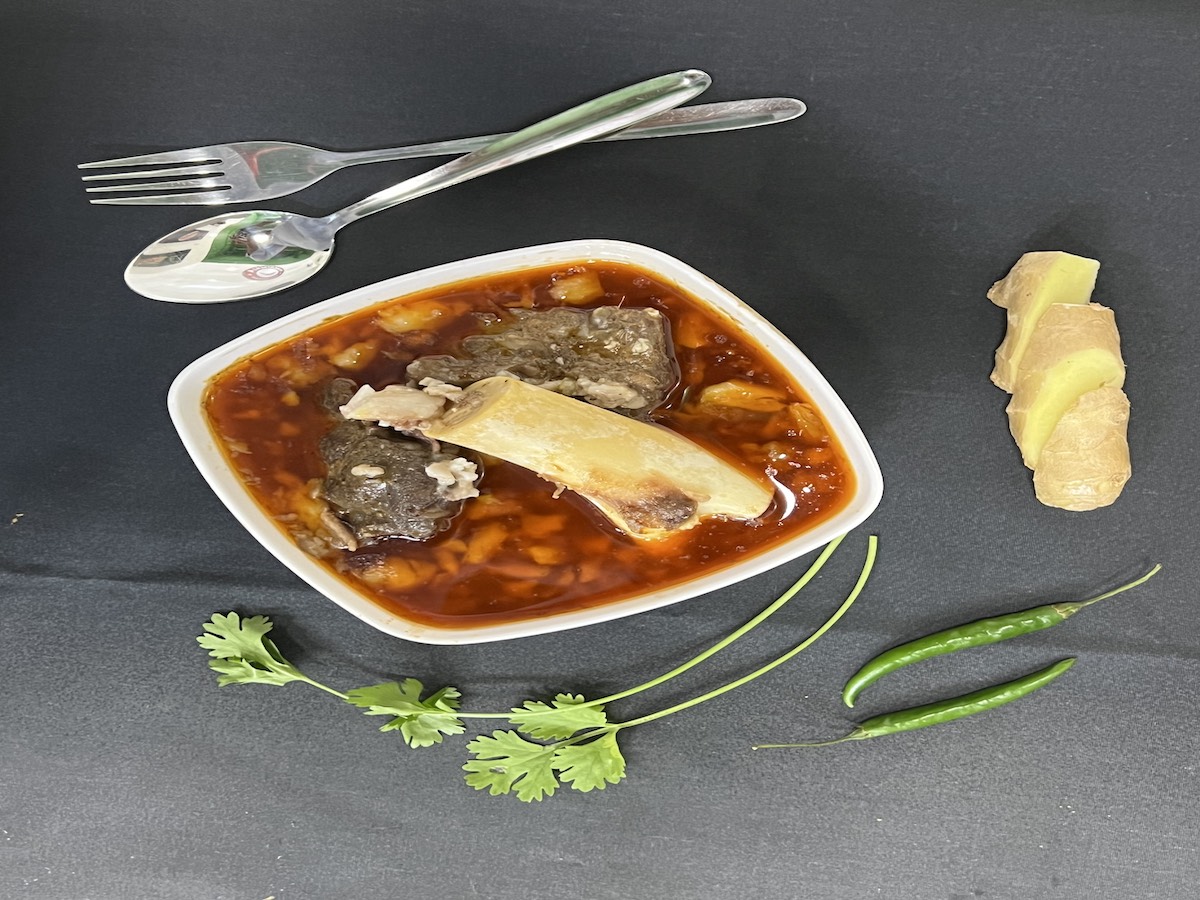Best Nalli Nihari in Dubai
Nihari is a stew believed to have originated in Lucknow, the capital of 18th century Awadh under the Mughals, in undivided India. It involves slow-cooked meat, mainly a shank cut of beef, lamb or mutton, as well as chicken and bone marrow. Typically, it is flavoured with long pepper or Pippali. While Delhi has enjoyed an emphatic combination of food since the Delhi Sultanate, the fine-tuning majorly happened with the Mughals. Consequently, the rich Mughlai spread of its Persian tinges enhanced with Indian tastes and flavours spelt real enchantment.
Mirchiwala, located in Karama, behind Ansar Gallery, serves you the Best Nalli Nihari in Dubai, prepared with beef and chosen spices.

The origin
The name Nihari was derived from Arabic ‘nahar’, which means ‘morning’. It was traditionally eaten by Nawabs of Awadh, in the Mughal Empire usually as a breakfast. According to majority sources, Nihari was invented in the royal kitchens of Lucknow, during the twilight of the Mughal empire. Initially, it was meant to be taken as a high-energy breakfast on an empty stomach by common labourers, particularly in colder seasons. However, the dish later on became popular among people at large, and in due course became an indispensable cuisine that originated from the royal cuisine of Mughal-time Nawabs.
Nihari remains a popular and delectable delicacy, specifically in parts of Delhi, Mumbai, Lucknow, Hyderabad, and Dhaka, and visibly so, many expats come to Dubai, from these places. The dish is known for its distinct taste, gravy, and most importantly the nostalgic feel that it carries.
Popularity of Nihari
Nihari was a traditional dish among the Indian Muslim communities mostly concentrated in areas of Lucknow, Delhi, and Bhopal. Following the partition of India in 1947, a large Muslim population from northern India migrated to Karachi, which was part of the West Pakistan and some of them shifted to Dhaka in East Pakistan. This migrated population is majorly responsible for making the dish popular in the subcontinent, mostly because they established a number of restaurants serving the dish in these newly touched areas. In Karachi, Nihari became an extensive success and soon spread in eminence and availability across Pakistan. Similar was the story in Bangladesh.
Today, Nalli Nihari is part of nearly every restaurant in Pakistan. Nihari has been a popular delicacy in parts of Bangladesh, chiefly Dhaka and Chittagong too. The creamy and spicy Nihari is left to slow-cook sometimes overnight which makes the meat tender and it also merges with the texture of the stew.
It is often teamed with brain and topped with ginger juliennes, chopped coriander leaves, green chilies and ghee. In some restaurants, a few kilograms from each day’s leftover Nihari is added to the next day’s pot; this reused portion of the dish is known as Taar and usually added to provide a unique flavour to the preparation. So much so that a number of Nihari outlets, claim to have kept an unbroken cycle of Taar going for more than a couple of centuries.
Nihari also is said to have some medicinal properties. It is traditionally used as a home remedy for fever, rhinorrhoea, and the common cold.
Trust us for the best Nalli Nihari in Dubai
Mirchiwala has taken the task of keeping the age-old Mughlai recipes alive, and replicates the same authentic taste of dishes from the Indian subcontinent that keeps lingering in the mouths of expats, here in Dubai. We source the best meat and authentic ingredients to cook the Best Nalli Nihari in Dubai.
